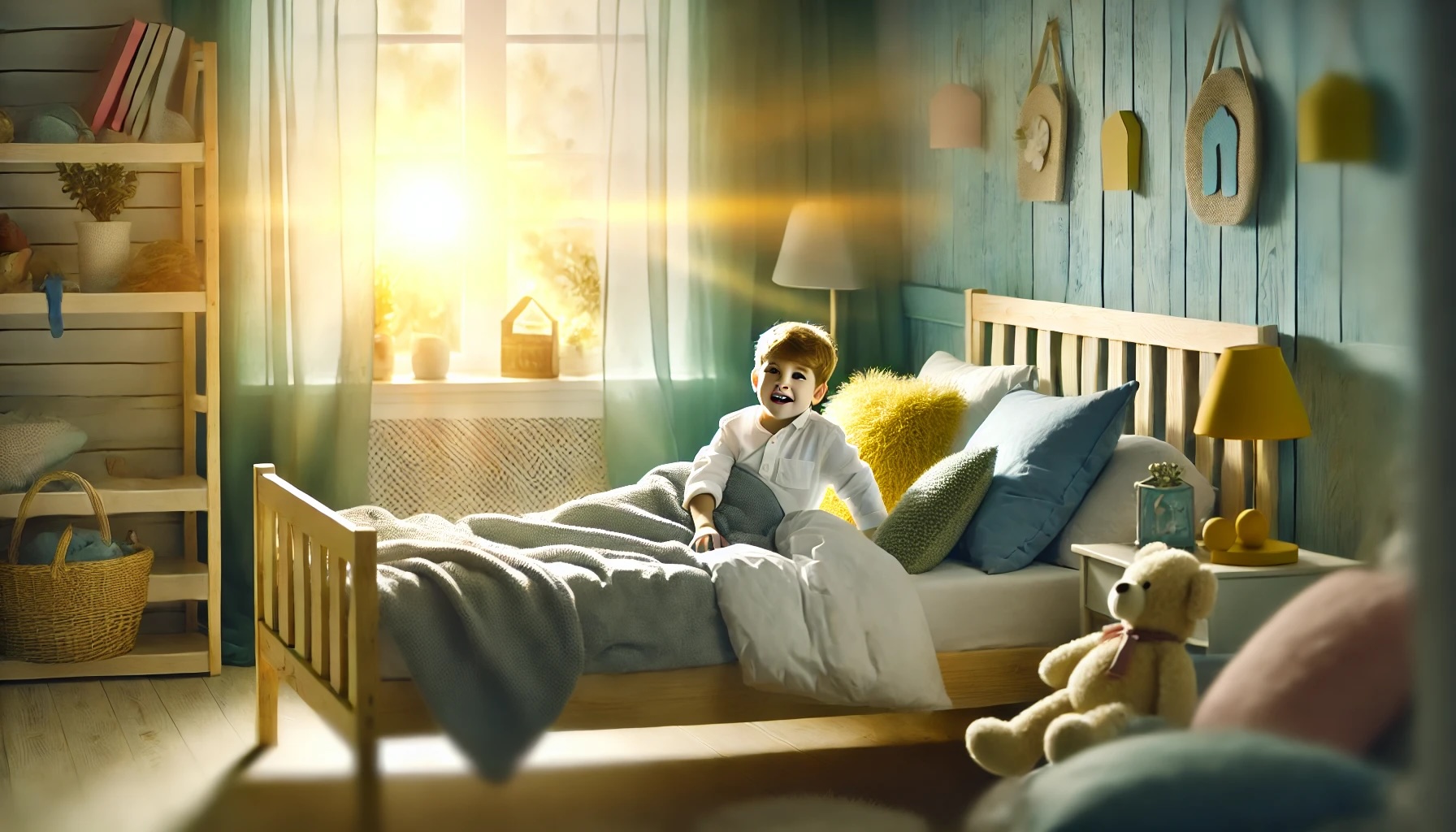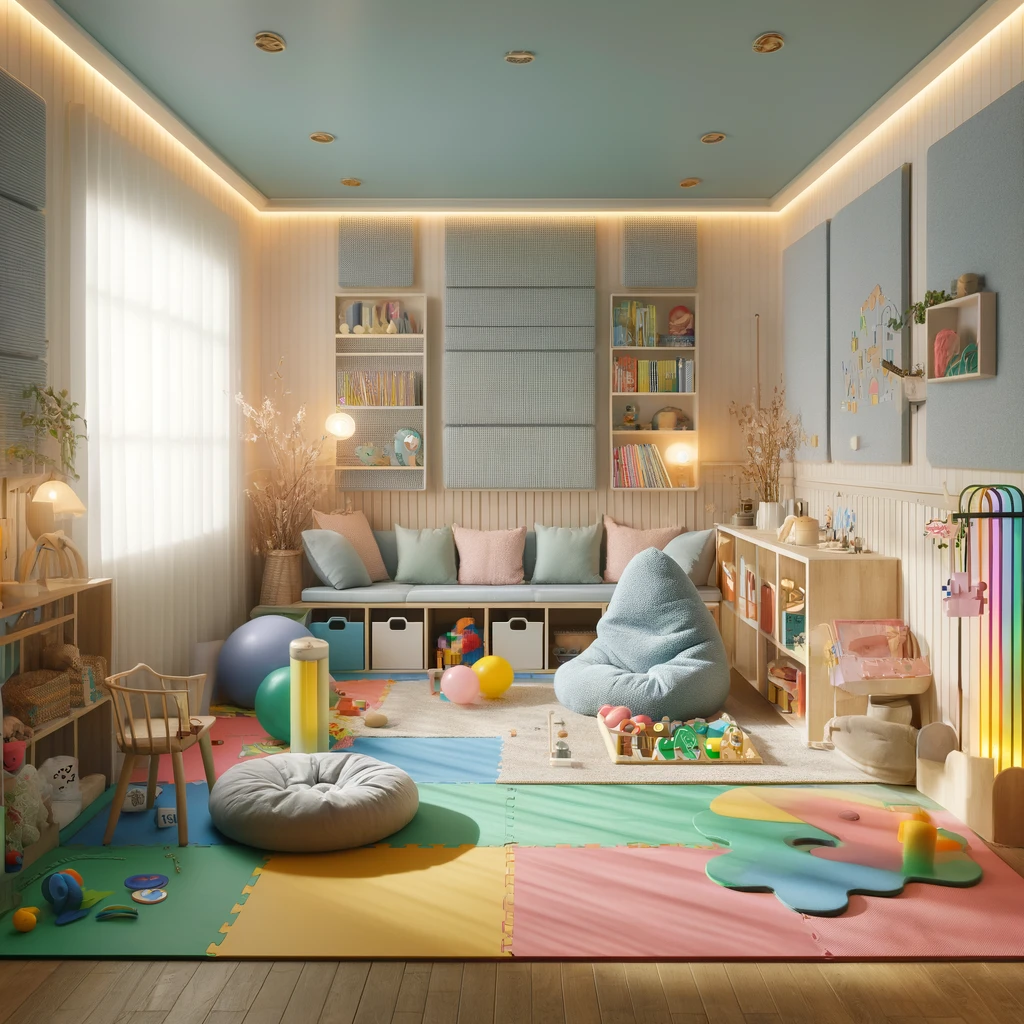
Improving Sleep for Children with Autism Spectrum Disorder (ASD)

December 17, 2024
Understanding and Improving Sleep Quality for Children with ASD
Sleep is the unsung hero of our health—it’s when our bodies recover, our minds reset, and everything gets a chance to recharge. For many children with Autism Spectrum Disorder (ASD), sleep can be a real challenge. In fact, 40-80% of children with ASD experience sleep problems, which can ripple through every aspect of their development and daily life.
This guide will help you understand the importance of sleep, how it affects children with autism, and practical steps you can take to improve sleep routines.
Why Sleep is Essential for All of Us
 When we sleep, some pretty incredible things happen in our bodies:
When we sleep, some pretty incredible things happen in our bodies:
- The brain and body repair themselves: Tissues heal, muscles rebuild, and cells regenerate.
- The mind processes and organizes: Memories are sorted, emotions are balanced, and stress is eased.
- Critical functions are regulated: Blood pressure decreases, blood sugar levels stabilize, and the immune system recharges.
Without enough quality sleep, we can face serious health and cognitive challenges, like poor memory, low energy, mood swings, and even chronic conditions like diabetes or high blood pressure. For children with autism, these effects can be even more pronounced.
How Sleep Problems Impact Kids with Autism
When children with autism struggle to sleep, the consequences go beyond feeling tired. Sleep deprivation can lead to:
- Irritability and mood swings
- Increased challenging behaviors
- Slower learning and memory retention
A well-rested brain is essential for growth and development, and understanding how much sleep your child needs at their age is a great first step.
Practical Tips for Improving Sleep for Children with ASD
If your child is having trouble sleeping, start by ruling out underlying health issues like allergies, gut problems, or seizures. Then, try these strategies:
 Things to Do to for Better Sleep
Things to Do to for Better Sleep
- Establish a relaxing bedtime routine: Warm baths, massages, or quiet sensory activities like rocking or swinging can help.
- Encourage calm, brain-focused play: Puzzles, sorting games, or stacking blocks can ease the transition to sleep.
- Keep the environment consistent: Make the bedroom cozy and free from distractions.
Things to Avoid to Improve Sleep Quality
- Screen time before bed: Avoid phones, tablets, or TVs at least an hour before bedtime to prevent blue light from disrupting melatonin production.
- High-energy activities: Skip running or jumping right before bed—it can overstimulate your child.
- Ending the routine too early: Make sure lights out happens soon after the bedtime routine ends.
Anxiety and Sleep Challenges
Does your child resist sleeping alone or struggle to settle into their bed? Anxiety about bedtime could stem from an inconsistent routine, difficulty separating from caregivers, or simply not being ready to sleep independently.
A Board Certified Behavior Analyst (BCBA) can design a personalized plan to build the skills your child needs for better sleep.
Medications, Supplements, and Sleep
If your child takes medications or supplements, it’s important to understand how they might affect sleep. For example:
- Stimulants or sedatives may disrupt natural sleep cycles.
- Melatonin, often used as a sleep aid, helps signal bedtime, but the dosage can vary widely across brands. Blue light from devices can also suppress melatonin production.
Always talk to your healthcare provider before introducing new medications or supplements.
How ABA Therapy Can Help Your Child Sleep Better
Did you know ABA therapy can support better sleep habits? A Behavioral Sleep Specialist BCBA can work with your family to:
- Analyze sleep behaviors: Identify what’s keeping your child awake or disrupting their sleep.
- Develop personalized plans: Tailored strategies that align with your child’s needs and your family’s routines.
- Support caregivers: Teach you how to maintain sustainable sleep routines long-term.
These plans might include creating a consistent bedtime schedule, teaching your child to fall asleep independently, or addressing specific challenges like night wakings.
Start the Journey to Better Sleep Today
Sleep is a critical foundation for health and happiness, and with the right tools, children with autism can achieve more restful nights and brighter days. If you’re struggling with sleep challenges, reach out to a BCBA or a Behavioral Sleep Specialist to develop a plan that works for your family.
Every step toward better sleep is a step toward a healthier, more balanced life for your child—and for you, too!
If you’d like to learn more, please feel free to contact us at referrals@learningarts.com. Or check out these additional resources:
Written by Carlotta Kollar, MS, BCBA, LBA, CBSS
Source: Ready Set Sleep: Emily Varon, MS, BCBA

About Author: Carlotta Kollar
Carlotta Kollar, M.S., BCBA, LBA, CBSS Carla, as she prefers to be called, became a Board Certified Behavior Analyst (BCBA) in 2021 and has been an integral part of Learning ARTS since 2017. Over the years, she has advanced through various clinical roles, honing her expertise in Applied Behavior Analysis (ABA). Carla’s passion lies in improving sleep quality for children with Autism, which led her to earn her Behavioral Sleep Specialist (CBSS) certification in 2023. This specialized training allows her to analyze sleep-specific behaviors, develop individualized sleep plans informed by the science of sleep and ABA, and provide caregiver support that fosters sustainable, long-term improvements. Carla’s approach addresses the unique sleep challenges of the Autism population, helping families overcome barriers to healthy sleep and empowering children to thrive. In addition to her work in parent and technician training, Carla shares her expertise through her blogs, offering valuable insights into sleep strategies and ABA practices. Her coursework as a Behavioral Sleep Specialist included topics such as ethical considerations for sleep programming, the science of sleep, sleep problem analysis and treatment, and autism-specific sleep strategies. Outside of her professional life, Carla enjoys wake surfing, boating, snowboarding, and camping with her family and two dogs.



